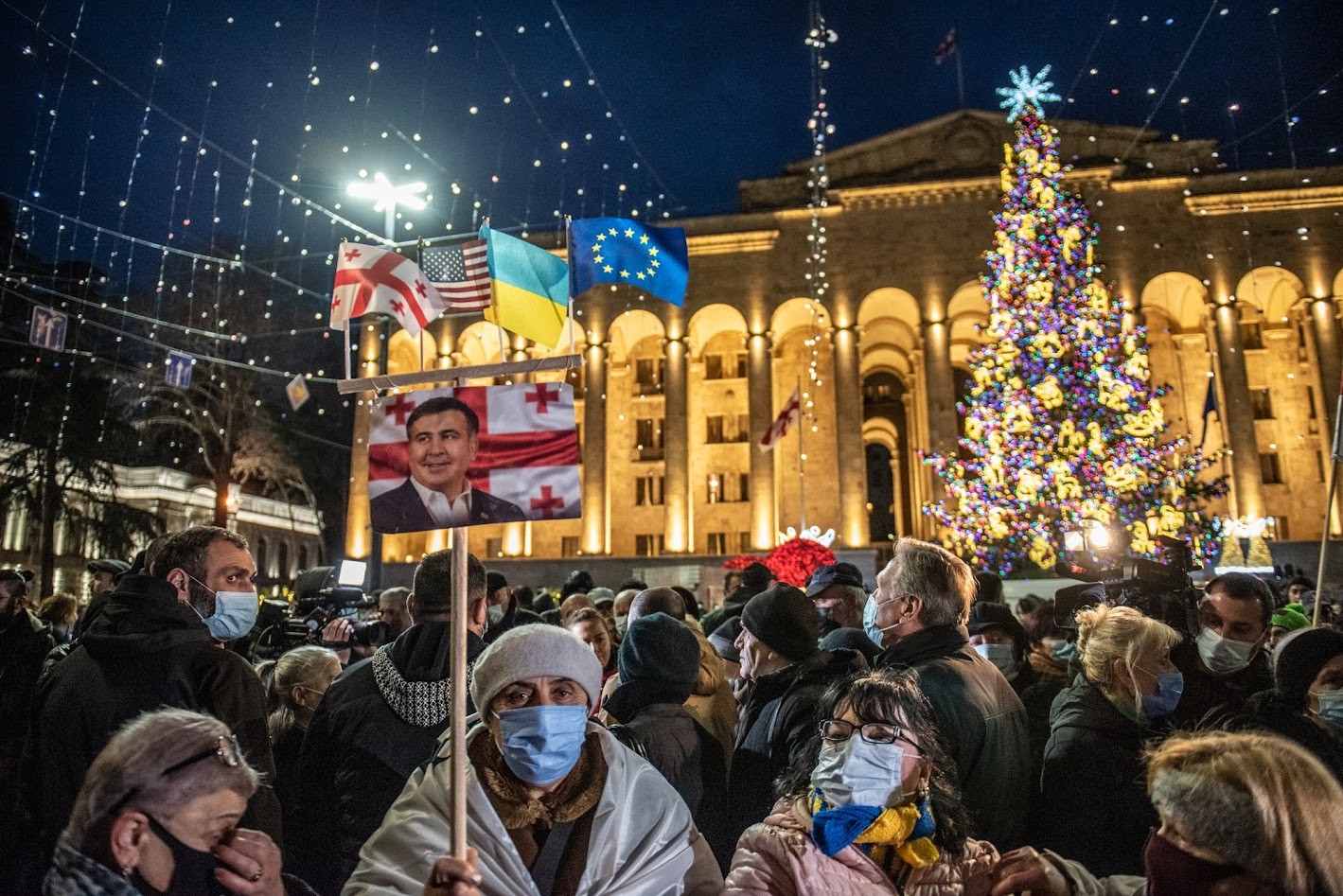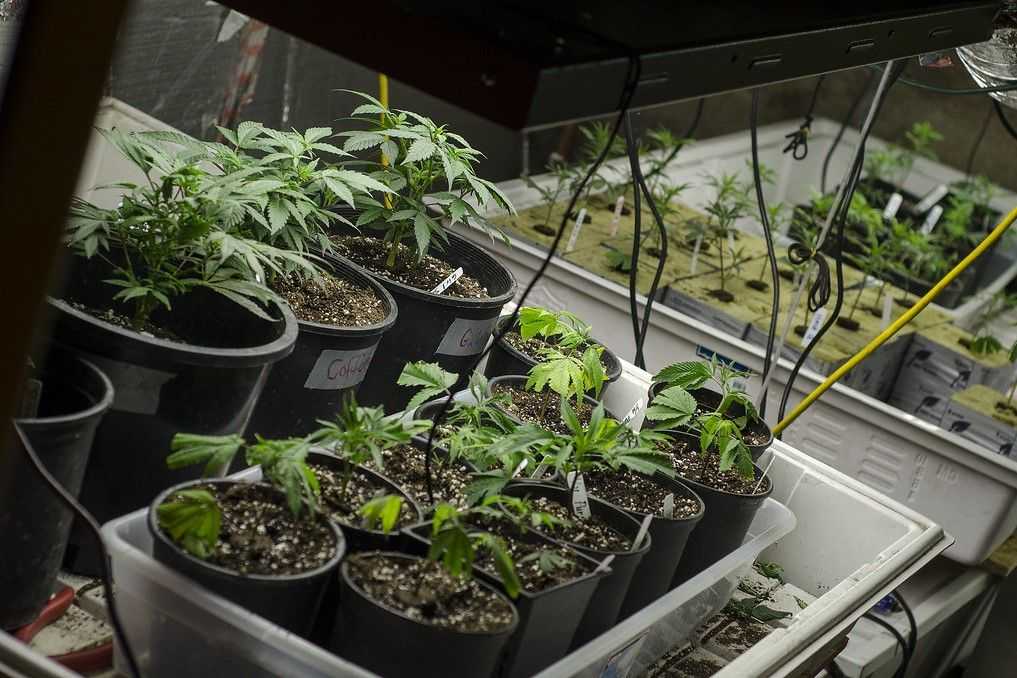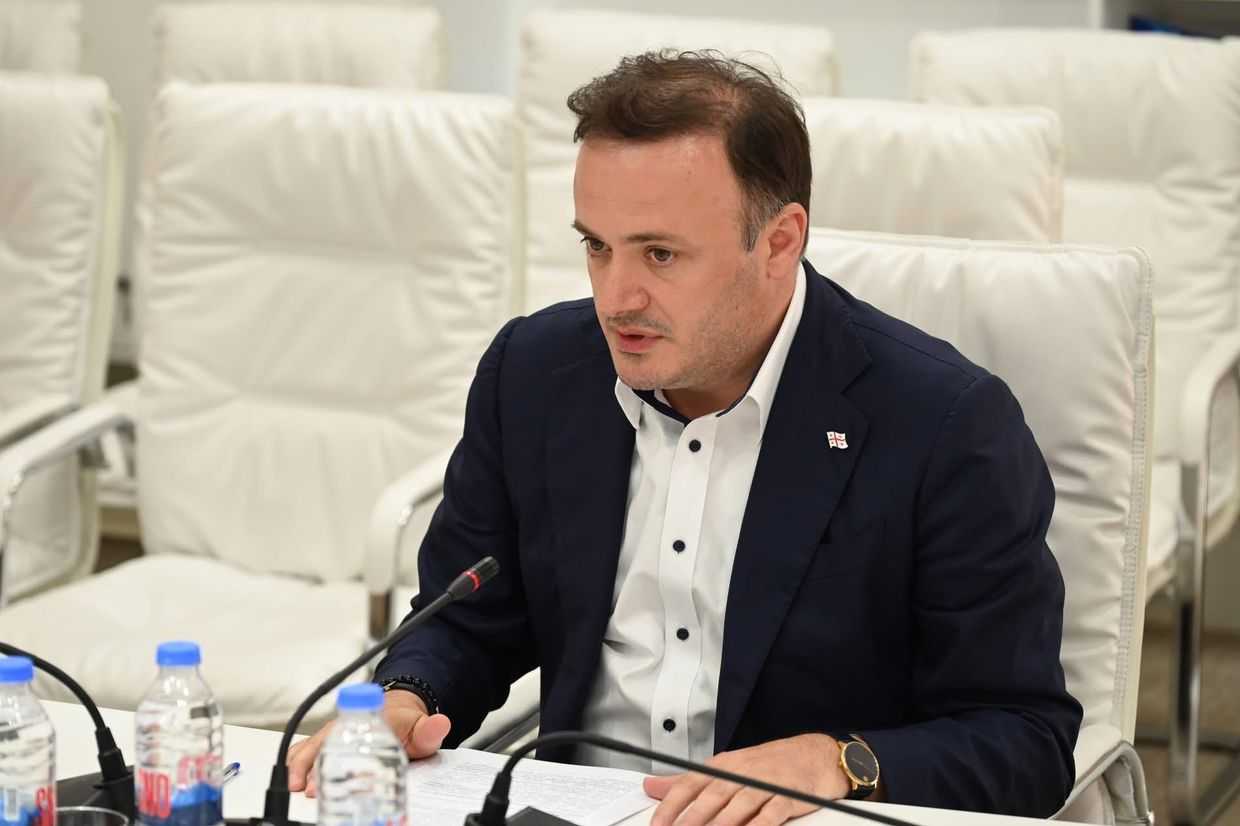
Anti-torture watchdog Empathy has warned that the currently imprisoned former president of Georgia, Mikheil Saakashvili, could die if he does not receive treatment outside of Georgia.
Empathy published its conclusion of Saakashvili’s health condition on Thursday.
Saakashvili’s lawyer appealed for his release or the postponement of his six-year prison sentence on charges of abuse of power. Saakashvili is also on trial in three other cases related to his time in power.
‘Mikheil Saakashvili needs to be immediately released from prison and urgently transferred to a US and/or EU multi-profile third-class university clinic for diagnosis and treatment,’ the statement reads. ‘Before his arrest […] the patient was practically healthy.’
Saakashvili has been recovering at the Vivamedi clinic in Tbilisi since 12 May, after a series of reports indicating his deteriorating condition. At the time, Empathy warned that the former president could die or face irreversible cognitive impairment due to a diagnosis of Wernicke’s encephalopathy, a life-threatening neurological condition caused by thiamine deficiency.
Following his arrest in October 2021, Saakashvili has been on two separate hunger strikes.
[Read more on OC Media: Saakashvili moved to civilian hospital]
Empathy’s latest press release about Saakashvili’s health states that the former president suffers from more than 20 symptoms and conditions, half of which make his imprisonment ‘incompatible’ with recovery whilst in detention.
‘There is a fever of unknown etiology, anorexia, rapid weight loss, pain in muscles, joints, bones, excoriations and scratch marks on [his] body, muscle atrophy,’ the statement reads.
The statement went on to conclude that Saakashvili ‘cannot remain in the current establishment as well as remain detained because we find the full toxicological testing impossible in this establishment’.
‘Timely screening for toxic agents, including chemical compounds and radioactive substances is necessary’, the report said, warning there was a risk of ‘intoxication, coma, and death’.
‘Victim of torture’
Saakashvili ended a 50-day hunger strike on 19 November 2021, upon being transferred to a hospital in the Georgian town of Gori. He reattempted a hunger strike on 23 February, only to call it off 15 days later.
The former president’s health has been a point of political speculation, as leaders of the ruling Georgian Dream party have insisted that the deterioration of his condition was a result of ‘self-harm’ — a reference to his hunger strikes. Empathy, however, have since stressed that the lack of adequate testing and treatment in Georgia is what now stands in the way of Saakashvili’s recovery.
Empathy said their report was a summary of a nearly 3,000-page conclusion from a commission comprised of 10 local and six international experts. The report also deemed Saakashvili a victim of ‘physical and psychological torture’.
Beyond the stress effects from allegedly being hazed in detention, the report mentioned a physical trauma to his spine, in an apparent reference to his being forcibly dragged into the Gldani prison in November 2021.
‘Out of Georgian politics’
Saakashvili snuck into Georgia and was subsequently arrested on the eve of crucial local elections in October 2021. He is currently serving a six-year sentence for abuse of office and faces several other charges relating to his time in power.
He has been unable to attend most of his court hearings.
In July, months after his unsuccessful hunger strikes and after street protests demanding his freedom had waned, Saakashvili largely stopped commenting on Georgian politics and indicated through his representatives and Facebook updates that he intended to leave Georgian politics and that Ukraine was now his focus.
While the Georgian authorities have consistently ruled out his release, leaders of the ruling party have expressed uncertainty as to whether their former ally, President Salome Zurabishvili, would pardon Saakashvili.
Zurabishvili has previously ruled out a pardon. However, in an apparent shift in tone on 24 November, she said she ‘hoped’ that the Georgian courts were capable of independently ruling whether Saakashvili needed to recover abroad.







